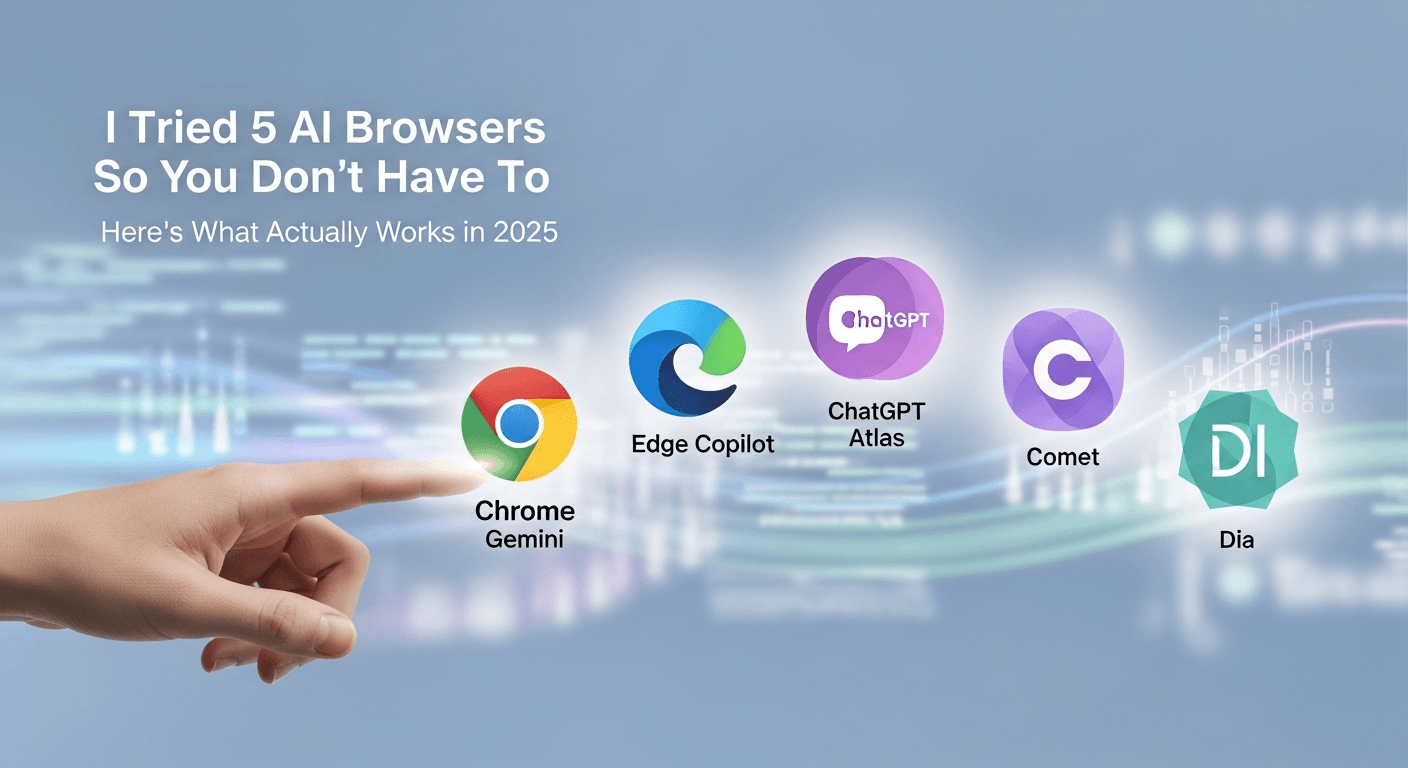
AI in Finance This Week: OCC Approves New Bank, AI Portfolio Tools Evolve, and Risk Disclosures Surge
Introduction
Artificial intelligence is redefining the landscape of finance, affecting everything from credit access to market risk assessment. In the week ending October 15, 2025, we witnessed significant strides in regulatory acceptance of innovation, the unveiling of advanced AI tools for investment teams, and a noteworthy increase in corporate disclosures regarding AI-related risks. Here’s a concise look at the pivotal developments this week and their implications for the finance and banking sectors.
This Week’s Highlights at a Glance
- OCC Approval: The Office of the Comptroller of the Currency (OCC) granted preliminary conditional approval for Erebor Bank, a new de novo national bank aimed at serving clients in the cryptocurrency, AI, and innovation sectors. This marks the first such approval under Comptroller Jonathan V. Gould.
- Bloomberg Innovation: Bloomberg has introduced AI Portfolio Commentary within PORT Enterprise, which automatically generates performance insights and market context for investment teams.
- Corporate AI Risk Disclosures: A study by The Conference Board and ESGAUGE revealed that 72% of S&P 500 companies now classify AI as a material risk, a significant increase from 12% in 2023, with reputational and cybersecurity risks at the forefront.
- Public Sentiment: A Gallup report indicates that 87% of Americans believe it is at least somewhat likely that foreign governments will leverage AI for attacks on the U.S. within the next two decades.
- Generative AI Awareness: Research from the Bank for International Settlements (BIS) shows widespread recognition of generative AI in Italy, with its monthly usage correlated to a 2% income premium.
- NBER Research: Two working papers from the National Bureau of Economic Research (NBER) explore how AI can expedite R&D processes and transform the information ecosystem, with significant implications for market quality and regulatory frameworks.
What the OCC’s Erebor Decision Signals
On October 15, 2025, the OCC announced conditional approval for Erebor Bank, located in Columbus, Ohio. This approval is notable as it is the first of its kind under Comptroller Jonathan V. Gould since his appointment in July 2025. The OCC highlighted that digital asset activities can operate within the federal banking system when conducted safely. However, Erebor Bank must still meet additional conditions and fulfill regulatory requirements before opening its doors.
Why It Matters
- Evolving Regulatory Environment: The OCC’s language suggests a shift towards risk-based supervision rather than outright bans on digital asset activities, encouraging banks to implement thorough controls.
- Market Demand: Following the collapse of Silicon Valley Bank, many startups and investors seek specialized banking partners. Erebor aims to fill this void effectively.
- Key Takeaway: Organizations involved in payments, digital assets, or AI infrastructure should prepare for more rigorous questions from regulators regarding risk management aspects, including custody, liquidity, and cyber controls.
AI Integration in Portfolio Workflows
Bloomberg’s AI Portfolio Commentary enhances PORT Enterprise by automating the synthesis of portfolio performance data with relevant news, delivering timely insights for both equity and fixed income teams. This streamlined approach allows analysts to focus on more in-depth analysis.
What to Watch Next
- User Experience: The effectiveness of the tool in turbulent markets will be closely monitored, especially its ability to integrate fundamental analysis with market contexts.
- Agentic AI Adoption: While interest in AI-driven tools is growing within the buy-side community, firms are approaching this with caution and will adopt solutions gradually.
Data Partnerships for Strategic Advantage
Research by Burton-Taylor reveals a shift in the finance sector; firms now seek stronger partnerships with data vendors and cloud-ready infrastructures to support AI applications. Meeting demand for AI-ready data could channel significant revenue growth in the coming years.
Importance
- Data Quality: Effective AI tools depend on high-quality data; organizations must prioritize vendor diligence and robust data pipelines.
- Governance Focus: Boards are increasingly scrutinizing not just AI efficacy but also traceability and fairness, mandating contracts that enforce accountability.
Rising Corporate AI Risk Disclosures
The Conference Board and ESGAUGE revealed a drastic increase in disclosures of AI-related risks among S&P 500 companies, now at 72%, with primary concerns centered around reputational damage and cybersecurity threats.
Implications for Risk and Compliance Teams
- Reputational Hurdles: A faulty AI deployment can quickly damage brand trust; companies must prepare comprehensive communications strategies.
- Cybersecurity Evolution: As generative AI presents new avenues for potential threats, organizations must implement controls specific to AI technologies.
- Regulatory Scrutiny: Enhanced vigilance is anticipated in how firms govern AI models, particularly in their influence on critical functions like underwriting and customer interactions.
Public Sentiment: Balancing Optimism and Anxiety
A recent Gallup survey reflects a mix of anxiety and enthusiasm, with 87% of Americans believing in the likelihood of AI-enabled attacks from foreign governments. This concern is accompanied by support for AI-related skill training, signifying both challenges and opportunities ahead.
Investor Sentiment: Cautious Optimism
Investors are currently skeptical regarding the returns on substantial AI investments and are assessing signs of market overbuild and energy constraints affecting data centers. Finance leaders are under pressure to demonstrate tangible efficiency gains alongside long-term investments.
Households Adopting Generative AI
A BIS study indicates that a significant portion of households in Italy are engaging with generative AI, with evidence that users may earn approximately 2% more than non-users. This correlation hints at the increasing relevance of AI competencies in the workforce.
Research Frontiers to Watch
- AI’s Impact on R&D: Research by Benjamin Jones explores how AI integration can enhance research productivity while addressing potential bottlenecks.
- Quality of Information: Scholars warn that without proper governance, AI could compromise the integrity of information sharing, leading to concerns about misinformation.
Practical Checklist for Financial Institutions
For leaders focusing on strategy, risk, data, or technology, consider this actionable checklist for scaling AI initiatives:
- Model Governance as a Product
- Define the complete lifecycle of AI models, ensuring documentation and ownership at each stage.
- Implement robust controls addressing bias, performance drift, and security measures, necessitating human oversight where necessary.
-
Maintain comprehensive records supporting audits and verifications.
-
Revamp Data Contracts and Pipelines
- Insist on data provenance and refresh schedules, alongside clear usage rights and contractual obligations for quality assurance.
-
Design architecture for easy retrieval and integration of AI applications with solid access governance.
-
Align AI with Customer-Centric Goals
- Focus on defining success through customer-focused metrics, while assessing outcomes for fairness.
-
Build transparent communication strategies that help customers understand model outputs.
-
Enhance Cybersecurity for AI Environments
-
Address potential AI-specific threats in security practices, ensuring incident response plays cater to new vulnerabilities.
-
Start Small and Measure Impact
- Choose specific, manageable use cases for early implementation and build measurable outcomes into workflows.
Use Cases to Watch in 2025-2026
- Portfolio Commentary: Rapid adoption of AI for consistent client reporting across multiple portfolios.
- Surveillance and Supervision: Agent-driven tools to streamline pre-triage of alerts and identify anomalies.
- Client Communications: AI personalization strategies for improved outreach and consolidated disclosures.
Bottom Line
- Regulatory bodies are gradually embracing well-controlled innovation, as evidenced by the OCC’s support for Erebor Bank.
- AI tools are becoming essential for investment teams, enabling faster reporting and facilitating analytical work.
- Executives must now confront AI risks rigorously, with increasing scrutiny on disclosures and governance practices.
FAQs
Q1) What did the OCC approve for Erebor Bank?
A: The OCC granted preliminary conditional approval for a de novo national bank charter, contingent on meeting further regulatory requirements.
Q2) How is Bloomberg’s AI Portfolio Commentary different from a generic chatbot?
A: It combines specific portfolio attribution data with credible news sources, delivering tailored insights for investment teams.
Q3) Why are so many companies disclosing AI risks now?
A: As AI transitions from trials to real-world applications, understanding the associated risks has become vital for governance and investor relations.
Q4) Do households benefit financially from using generative AI?
A: Data from Italy indicates that generative AI users may enjoy a modest income premium, highlighting the emerging value of such skills in the job market.
Q5) Are we in an AI investing bubble?
A: Views are mixed; while enthusiasm is high, concerns exist about the feasibility of rapid returns on substantial capital investments.
Further Reading and Sources
- OCC news release on Erebor Bank conditional approval.
- Bloomberg’s announcement on AI Portfolio Commentary.
- The Conference Board and ESGAUGE report on S&P 500 AI risk disclosures.
- Gallup analysis of public opinion on AI and national security.
- BIS study on household generative AI adoption in Italy.
- NBER working papers on AI’s impact on R&D and information integrity.
Thank You for Reading this Blog and See You Soon! 🙏 👋
Let's connect 🚀
Latest Insights
Deep dives into AI, Engineering, and the Future of Tech.

I Tried 5 AI Browsers So You Don’t Have To: Here’s What Actually Works in 2025
I explored 5 AI browsers—Chrome Gemini, Edge Copilot, ChatGPT Atlas, Comet, and Dia—to find out what works. Here are insights, advantages, and safety recommendations.
Read Article


